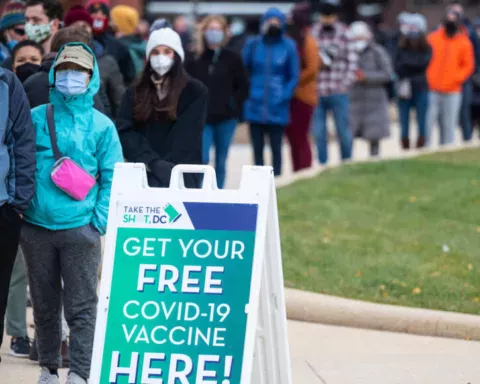The study, out of UChicago Medicine, looked at 489 patients whose vitamin D levels were measured within the year before being tested for novel coronavirus. Those patients with levels categorized as deficient were found to be more likely to have a positive COVID-19 test result.
“The relative risk of testing positive for COVID-19 was 1.77 times greater for patients with likely deficient vitamin D status compared with patients with likely sufficient vitamin D status, a difference that was statistically significant,” the researchers stated in the recent study. The study also shared that “Likely deficient vitamin D status was associated with increased COVID-19 risk, a finding that suggests that randomized trials may be needed to determine whether vitamin D affects COVID-19 risk. Vitamin D affects the metabolism of zinc, which decreases the ability of coronaviruses to replicate. The team of researchers also stated that “higher vitamin D levels correlate with lower interleukin 6 levels, which are a major target for controlling cytokine storm in COVID-19.”
Chief of hospital medicine at UChicago Medicine, Dr. David Meltzer said in a press release that Vitamin D is important to the function of the immune system and vitamin D supplements have previously been shown to lower the risk of viral respiratory tract infections. “Our statistical analysis suggests this may be true for the COVID-19 infection.” – He added.
The findings support past research linking low vitamin D levels with more severe coronavirus infections and a higher risk of death from the disease, though there’s still no evidence that the vitamin can prevent or cure the disease. More research is needed, Meltzer and his team added, to better understand whether there’s a cause-and-effect relationship between supplementing with vitamin D and lowering your risk for COVID-19. Future findings could be especially beneficial to Black and Hispanic Americans, populations at greater risk for both vitamin D deficiency and severe COVID-19, according to the Insider.
Vitamin D may help reduce the spread of the virus given its ability to affect replication of viral cells and accelerate the clearance of the virus cells, the study found. However, researchers caution that asymptomatic individuals can transmit the novel coronavirus and that if vitamin D reduces inflammation, it might increase asymptomatic carriage and decrease symptomatic presentations, including cough, making it hard to predict its effect on viral spread. The research team from Chicago said there is a need for experimental studies to see if vitamin D supplementation can decrease the risk of contracting coronavirus and reduce the severity of the disease if a person becomes infected. Several clinical trials have been initiated at the University of Chicago Medicine. The team also discussed the need for further research on proper strategies for supplementing vitamin D in most populations, – Fox News reported.
Researchers do admit that vitamin D deficiency may be increased by many factors that could be associated with COVID-19 risk. These include age, obesity, diabetes, and chronic illness more generally, observed associations of vitamin D with outcomes in almost any observational study may fail to accurately reflect any potential causal effects of vitamin D on outcomes, Yahoo News wrote.
Dr Meltzer himself is doing his best to get some daily sunshine, as well as taking vitamin D supplements. Mayo Clinic experts recommend getting at least 600 IU of vitamin D a day, whether via sunshine or supplements. It’s generally considered safe to take up to 2,000 IU a day, but anyone with or at risk of kidney disease should not do so, as an overload can harm kidneys, causing stones and other problems. Taking too much can also elevate calcium levels, cause a host of digestive issues and may lead to bone loss in some cases. Dr Meltzer adds that scientists still don’t know what, exactly, is the optimal level of vitamin D, or how much is too much. As for the racial disparity in COVID-19 cases, Dr Meltzer says that vitamin D is not the answer, but it might well play a role, considering his study’s findings and the approximately two-fold higher rates of vitamin D deficiency among black Americans compared to the general population, according to Daily Mail.
Obesity makes it more difficult to vaccinate adults against influenza. Will this be the case for COVID-19 too? Evidence that obese people have a blunted response to common vaccines was first observed in 1985. Moreover, having obesity, defined as a body mass index (BMI) of 30 or above, increases your risk of severe illness from COVID-19. The researchers found that 22 percent of obese patients were intubated, 25 percent died, and 2 percent remained hospitalized during a median hospital length of stay of seven days
Source: The FINANCIAL





